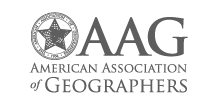
Our Mission
To foster an understanding of remote sensing science. Emphasis is placed on developing a meaningful dialogue among geographers interested in understanding and applying remote sensing technology in research, instruction, public service, and private enterprise. RSSG on Facebook
RSSG on Facebook

2021 Career Mentoring Panel in Remote Sensing
Event date and time: Wednesday, November 17, 2021, 01:00-02:30pm (US Eastern Time)
Zoom link: https://odu.zoom.us/j/93475735708
Event registration: Any interested individuals are highly encouraged to fill out the RSVP form here, to better track the number of participants.
Panelists: Five scholars and professionals with diverse backgrounds and experience have agreed to serve on the panel:
Dr. Marguerite Madden from University of Georgia (click here for bio)
Dr. Marguerite Madden is a Professor in the University of Georgia (UGA) Department of Geography and Director of the Center for Geospatial Research (CGR). She holds Bachelor and Master of Arts degrees in Biology from the State University of New York and Ph.D. in Ecology from the University of Georgia. Since the late 1970s, she has conducted research combining remote sensing and geospatial analyses with landscape ecology, particularly focused on human-animal-environment interactions. Joining the UGA-CGR in 1985, she helped to develop and analyze numerous multi-temporal and detailed vegetation databases for local, state and national conservation lands throughout the Southeastern United States. Examples of recent research include the use of satellite imagery, Uncrewed Aerial Systems (UAS), GPS tracking, photogrammetry and GIS to assess landuse changes related to African elephant movement and human-elephant conflict, 3D vegetation structure for monitoring smallholder farms and machine learning/deep learning analysis for agroecosystem studies. Professor Madden is Past President of the American Society of Photogrammetry and Remote Sensing (ASPRS) and Editor of the 2009 ASPRS Manual of GIS. She served as the International Society for Photogrammetry and Remote Sensing (ISPRS) Commission IV, “Digital Mapping and Geodatabases” Technical President (2008-2012), ISPRS Council Second Vice President (2012-2016) and Treasurer of The ISPRS Foundation (2010 to present). She is the recipient of the ASPRS Fellow Award (2010), ASPRS SAIC Estes Memorial Teaching Award (2011), NASA Silver Achievement Medal (2018), ASPRS Lifetime Achievement Award (2020), ISPRS Fellow Award (2020) and the American Association of Geographers (AAG) Remote Sensing Specialty Group (RSSG) Outstanding Contributions Award in Remote Sensing (2021). She is currently a member of the Mapping Science Committee of the U.S. National Academies of Sciences, Engineering and Medicine (2021-2024).
Dr. Beth Tellman from University of Arizona (click here for bio)
Dr. Beth Tellman is an Assistant Professor at the University of Arizona, in the School of Geography, Development, and Environment, and is the co-founder and Chief Science Officer at Cloud to Street. At Columbia, she was mentored by Dr. Upmanu Lall at The Columbia Water Center and Dr. Dan Osgood from the Financial Instrument Sector Team at International Research Institute for Climate and Society. She completed her PhD, advised by Dr. B. L. Turner II and Dr. Hallie Eakin, in 2019 in the School of Geographical Sciences at Arizona State University. Her research seeks to address the causes and consequences of global environmental change for vulnerable populations, with a focus on illicit activities, flood risk, water scarcity, and land use change. Hear about her journey and research philosophy in this University of Arizona podcast from January 2021.
Mr. Keith VanGraafeiland from ESRI (click here for bio)
Mr. Keith VanGraafeiland is a Principal Product Engineer with Esri. He serves as the Ocean Content Lead for the ArcGIS Living Atlas of the World, a long-term project whose emphasis is on visually appealing and useful map information products. In his role at Esri, he is responsible for curating, developing and implementing ocean related content for the GIS community. This includes maintaining a network of authoritative data providers and working with them towards nominating their layers, maps and apps for inclusion the Living Atlas of the World and working with the community to understand information needs. Keith has been focusing on marine environmental GIS solutions for over 15 years. You can get in touch with Keith by emailing him at KVanGraafeiland@esri.com and you can connect with him on LinkedIn: https://www.linkedin.com/in/keithvangraafeiland/
Dr. James Voogt from University of Western Ontario (click here for bio)
Dr. James Voogt is Professor and Chari in the Department of Geography and Environment at the University of Western Ontario, in London Canada. He is an urban climatologist who specializes in the measurement and modelling of urban surface temperatures. He received his PhD in 1995 from the University of British Columbia. He has contributed to research projects on understanding the three dimensional surface temperature of cities, thermal anisotropy over urban areas, the use of remotely sensed surface temperatures in urban climate model evaluation, the climate performance of green roofs, and spatial variations in the heat impacts on urban residents. Dr. Voogt is a past president of the International Association for Urban Climate and a co-author of the text ‘Urban Climates’ published by Cambridge University Press.
Dr. Lexie Yang from Oak Ridge National Laboratory (click here for bio)
Dr. Lexie Yang is a lead research scientist in the GeoAI Group at Oak Ridge National Laboratory. Her research interests focus on advancing high performance computing and machine learning approaches for large scale geospatial data analysis. She had collaborated with esteemed scholars for NASA AIST, NSF, DOE sponsored projects and currently leads several AI-enabled geoscience data analytics projects with large-scale multi-modality geospatial data. The recent work from her team has been widely used to support national-scale disaster assessment and management by federal and local agencies. She received PhD in Civil Engineering from Purdue University in 2014.
Cosponsors:
- • ISPRS Journal of Photogrammetry and Remote Sensing
- • MDPI Remote Sensing
- • AAG Biogeography Specialty Group
- • AAG China Geography Specialty Group
- • AAG Landscape Specialty Group
Questions should be sent to Dr. Hua Liu (hxliu@odu.edu), Chair of AAG RSSG.





